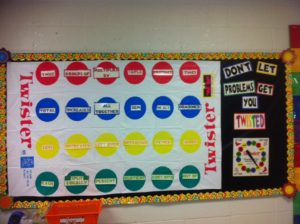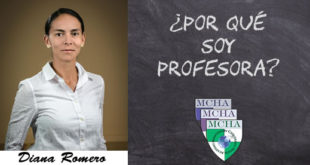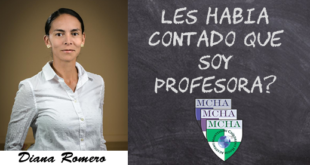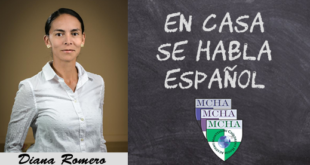 Many teachers think of language objects only as those in boxes used for I Spy or sound games or the First Phonetic Object Box. But language objects are everywhere – they don’t need to come in a box.
Many teachers think of language objects only as those in boxes used for I Spy or sound games or the First Phonetic Object Box. But language objects are everywhere – they don’t need to come in a box.
In the Montessori classroom, everything has a place and a purpose. This principle is apparent in how we go about placing small, beautiful objects around the classroom, which, when children interact with them, become even more meaningful.
Reading what’s around you
I use all types of objects in the classroom for early reading activities. In addition to miniatures for the phonetic object boxes, I use everyday items from the Montessori environment, Montessori materials, and the special, beautiful objects I bring in. All these items can be used in early reading games where children read a word on a slip of paper and retrieve the item from the environment. Here’s one of my favorite versions.
The children in my 3-6 class are very responsive to group games. Gathering a group of children of mixed ages and abilities, I bring out my writing box and covertly write words or phrases on slips of paper. I then pass them out face down, one to each participant.
Depending on each child’s skill level, the chosen words usually range from the purely phonetic, like mat to the more descriptive, such as green plant. If an older child who has been introduced to the Function of Words activities is present, I might also include an article, like the glass whale.
Capitalizing on the familiar
Whatever objects/words I do choose, I make sure that they are familiar to the child, and that the children have been exposed to them previously through spoken language. This helps set up the child for success, and also encourages friendliness with error if they need any form of help.
Eureka!
After passing out the written slips, the best part as a teacher is sitting back and waiting for each child to recognize their written words or phrases. Occasionally they do need help, and I am always available to whisper out key middle or ending sounds, if necessary. When it all comes together and they “get” it, they often have a difficult time containing themselves.
Their “eureka” moment is hard to suppress: children jump up from their seats, bee-lining straight across the room to find their select objects, as if on a secret mission. Once they retrieve their prized object, they proudly bring it back to the rug. In time, they have a chance to announce what they have found and display it to their peers, and they do so beaming with excitement.
Younger children benefit, too!
Inadvertently, this activity becomes a great opportunity for a younger child to catch a glimpse of a more complicated word or phrase. Whenever possible, I’ll write words on slips of paper and verbally ask less fluent readers to bring objects with more difficult names in hopes they might glance at the corresponding words. Although not all children may be reading sentences entirely on their own, activities such as this can enhance children’s confidence in their abilities and reinforce how discovery is a key element in the reading process.
This game mirrors what is happening in children’s minds as they are learning to read: it honors children’s exact perception of a physical object while they match it to a symbolic representation of the object (words) on a piece of paper.
Learning through movement
After allowing children to sound out a word at their own pace, this game then gives children a chance for almost instant gratification as they travel to get that object and place it next to their slip on the rug. I participated in a similar process myself during my training and remember how surprisingly satisfying it was.
As this game unfolds, each child moves through the room, learning through movement, which numerous studies have cited as the preferred way for children to remain engaged while learning. Not to mention, learning is happening around a rug in a collaborative group environment… so many optimal learning situations rolled into one!
The classroom is your oyster
Activities such as this remind me that learning to read can be so much more than sounding out words on a page. Aside from the amazing experience of being able to understand someone else’s thoughts without a word being spoken, familiar objects from around the room have the capacity to be transformed into powerful tools for language development. Properly executed, this type of activity puts new energy on the things in the child’s environment, which can then enable children to joyfully discover the power of the written word.
 Montessori blog Montessori blog
Montessori blog Montessori blog 


https://amoxil.icu/# amoxicillin buy online canada